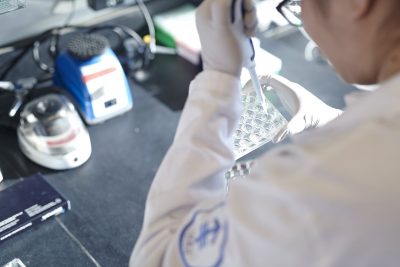- Researchers from several academic institutions in the U.S. conducted a prospective cohort study on the impact of physical activity on cancer. It demonstrated that physical inactivity, or a greater sedentary lifestyle, was associated with higher (up to 82%) cancer mortality. At the same time, a moderate intensity exercise reduced the risk of cancer death by 31%. The study was published in Lancet Oncology.
- Colitis is a known digestive tract side effect of immunotherapy in cancer treatment. A new study by U.S. researchers established that vitamin D supplementation before starting cancer treatment reduced the risk of developing colitis in patients treated with immune checkpoint inhibitors by 65%. This study was published in Cancer.
- A novel formulation of an existing drug abiraterone acetate used for prostate cancer (currently available as a commercial product Zytiga) can make a significant impact on the quality of life of patients treated with it. Australian scientists enhanced the drug’s properties “by using oils to mimic pharmaceutical food effects,” leading to fewer side effects and smaller doses needed for treatment. This preclinical study was published in the International Journal of Pharmaceuticals.
- Scientists from Europe established that “targeting cancer’s ability to process fat” by using a combination of a new class of drugs called cPLA2 inhibitors and a fat free diet makes cancers less reliant on fat for their growth and spread. This animal study was published in Cell.
Category Archives: Cancer Research News
Research in Genetics to Help with Cancer Treatment Decisions

A new study by researchers from Memorial Sloan Kettering Cancer Center found that patients with metastatic pancreatic cancer who had germline or somatic mutations in DNA repair genes responded better to platinum-based chemotherapy compared to patients without those mutations. The study was published in Clinical Cancer Research. Dr. O’Reilly, senior author on the study, pointed out that “The results underscore the importance of genetic testing in newly diagnosed patients to help refine treatment decisions.”
Another genetic study demonstrated for the first time that not only genetic mutations but pre-existing genetics can promote metastatic cancer spread. The research led by a team from Rockefeller University was published in Nature Medicine.
Select Mechanisms of Stopping Cancer Development and Cancer Recurrence and More
- Research conducted by a group of scientists from different institutions led by the University of Michigan Rogel Cancer Center has identified a key braking mechanism that could potentially halt the runaway growth of many different types of cancer. The scientists achieved a precise understanding, which was lacking in previous research, of how the activity of PP2A, an enzyme produced by the body and capable of halting the tumor growth, is increased by small molecule activators of PP2A (SMAP), specifically, by DT-061 SMAP. This breakthrough discovery can be potentially used in developing new promising treatments. The study is due to be published in Cell.
- Researchers from Francis Crick Institute (London, UK) identified an experimental drug instrumental in preventing cancers from recurrence. The drug. Quisinostat, could stop tumor re-growth after initial treatment in live mice and prevent the expansion of surviving human cancer cells in culture. Quisinostat works by interfering with the cancer cells epigenetic state to stop them from self-renewal. The study has been published in Nature Communications.
- Researchers from the University of Bayreuth (Germany) identified a natural protective mechanism against cancer that can develop as a result of the irregular distribution of genetic information to daughter cells. Their research focuses on the role of enzyme separase in cellular processes. The findings, which offer new approaches for cancer therapy, are published in Nature,
- Researchers from the United States and Europe reported successful implementation of an Artificial Intelligence algorithm for stratifying the risk of indeterminate pulmonary nodules (IPNs). The use of Artificial Intelligence may lead to decreasing invasive procedures and reducing cancer diagnosis delays, which are crucial for timely cancer treatment. The study is due to be published in the American Journal of Respiratory and Critical Care Medicine.